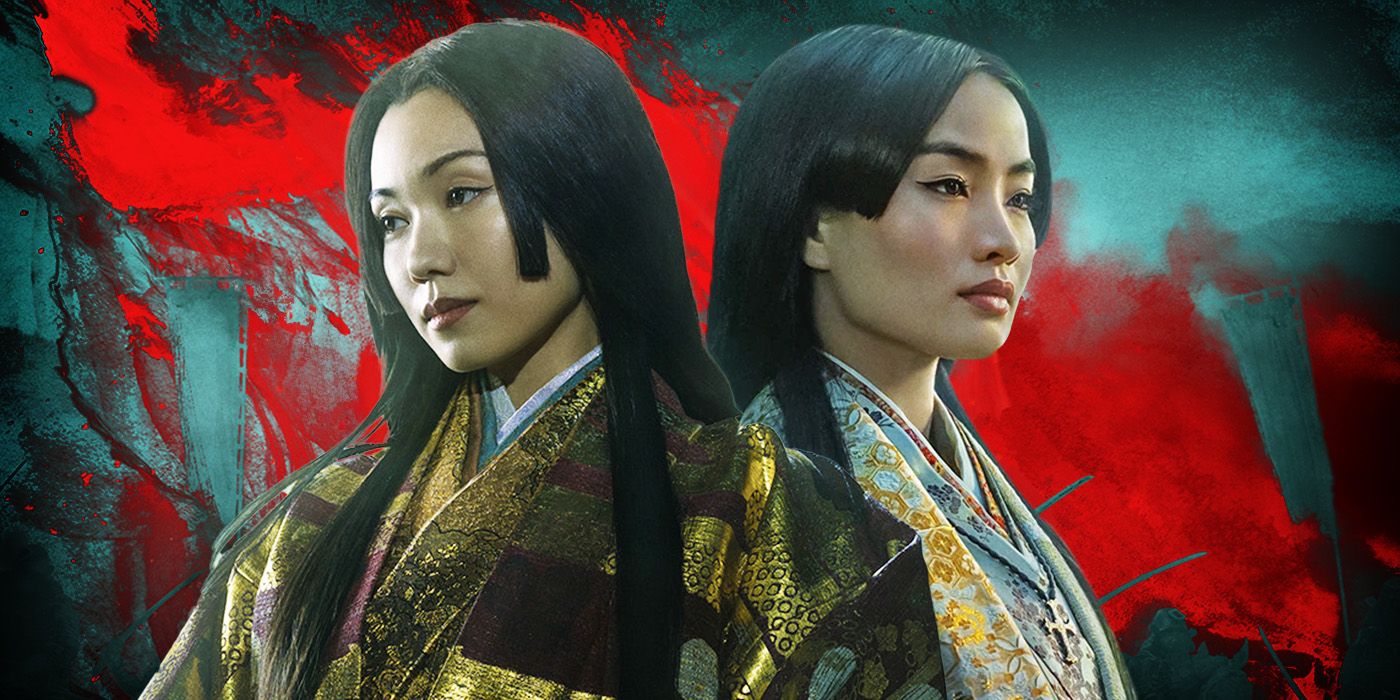
If Shōgun‘s refreshingly unconventional finale confirms anything, it’s the FX epic’s way with words. Battle scenes? There’s no time when the dialogue is tantamount to a feast. Tensions rise through conversations that are gradated with meaning, and concurrent levels of meaning at that. Characters manipulate and conceal. Language is power, and language is a dance; succinct statements trump prosaic speeches. More explicitly, there’s the language barrier necessitating Lady Mariko’s (Anna Sawai) presence as John Blackthorne’s (Cosmo Jarvis) translator and Lord Toranaga’s (Hiroyuki Sanada) go-between with the English interloper. Both men trust Mariko with their words. She doesn’t twist them, although she chooses which of Blackthorne’s blunt declarations to translate, minimize, or remove altogether. (Cue the delightful memes.)
The multilingual Mariko understands the power of words more than other Shōgun characters. Intent, inflection, implication: everything comes to bear when she speaks. Shōgun‘s penultimate episode, “Crimson Sky,” highlights Mariko’s esteemed skill as an improvisational poet. During her meeting with the Council of Regents and Lady Ochiba no Kata (Fumi Nikaido), Mariko creates a poem. It’s a stanza layered with almost as much nuance as the full series, especially because it’s a secret clarion call from Mariko to Ochiba.
‘Shōgun’ Mirrors Mariko and Ochiba
Mariko’s tragic tale is one of loss, isolation, untapped fury, and vengeance. So is Ochiba’s, her oldest and only childhood friend. Both women were placed on opposite sides of Shōgun’s conflict through no means of their own. For Mariko, it’s her father, Akechi Jinsai, marrying her to Buntaro (Shinnosuke Abe) to shield her from the aftermath of Jinsai’s failed revolution. Buntaro won’t let Mariko perform seppuku, an act of dissent that should be her right. As a married woman, Mariko has no rights; she’s trapped.
In Ochiba’s case, she’s chosen to be the taiko‘s latest consort and charged with producing an heir. Countless women have already failed, making motherhood Ochiba’s sole purpose. Since the ruling warlord the taiko replaces was Ochiba’s father, it’s an especially heinous and personalized offense. Ochiba’s life is just as confined as Mariko’s.
Until the finale, both women choose different methods of resistance. Mariko continues her father’s fight by following Toranaga. Ochiba allies with the treacherous Lord Ishido (Takehiro Hira) against Toranaga because she believes the latter orchestrated her father’s death. Shōgun never answers whether Ochiba’s assertion is true or false. Ultimately, it doesn’t matter. Mariko and Ochiba seek single-minded justice for their families. They are a hair’s breadth away from being the same person, their circumstances having forged them into artillery.
Except, there’s no need for war. Personal enmities waged against trauma and injustice, yes, but not the kind of battle that devastates nations. Mariko makes that clear during her session with the Regents and Ochiba in Episode 9. “While the snow remains,” Mariko recites, “veiled in the haze of cold evening, a leafless branch.” She reaches out to Ochiba through her poem, and oh, does the heir’s mother hear Mariko’s message. The subtle wordplay is unmistakable for a woman as sage and seasoned as Ochiba — especially since her name translates to “falling leaves.”
What Does Mariko’s Poem Mean in ‘Shōgun’?
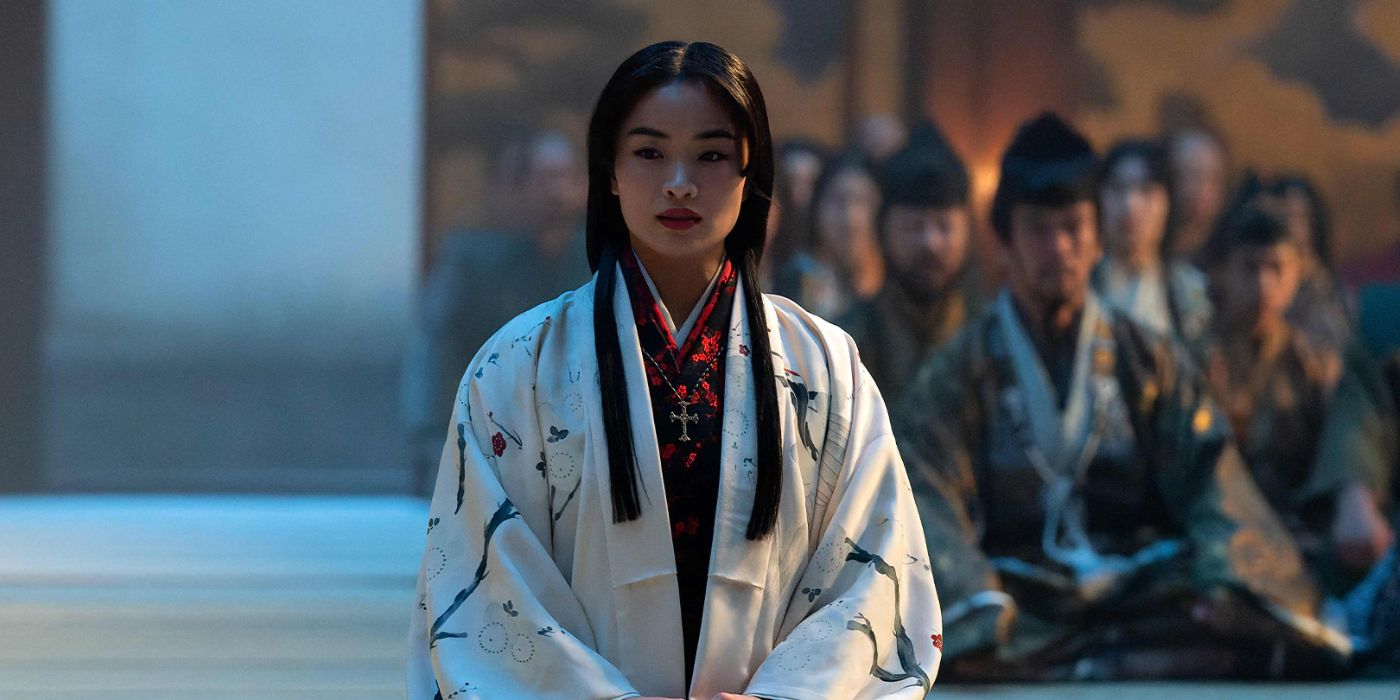
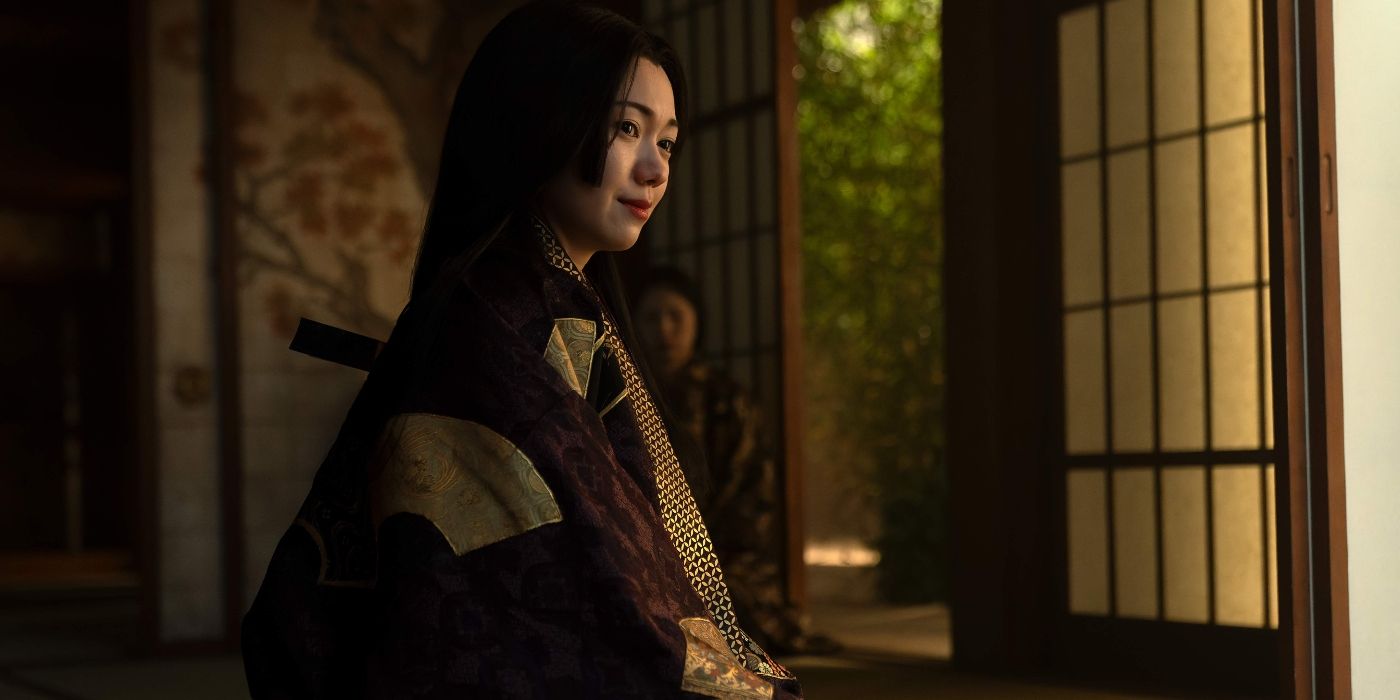
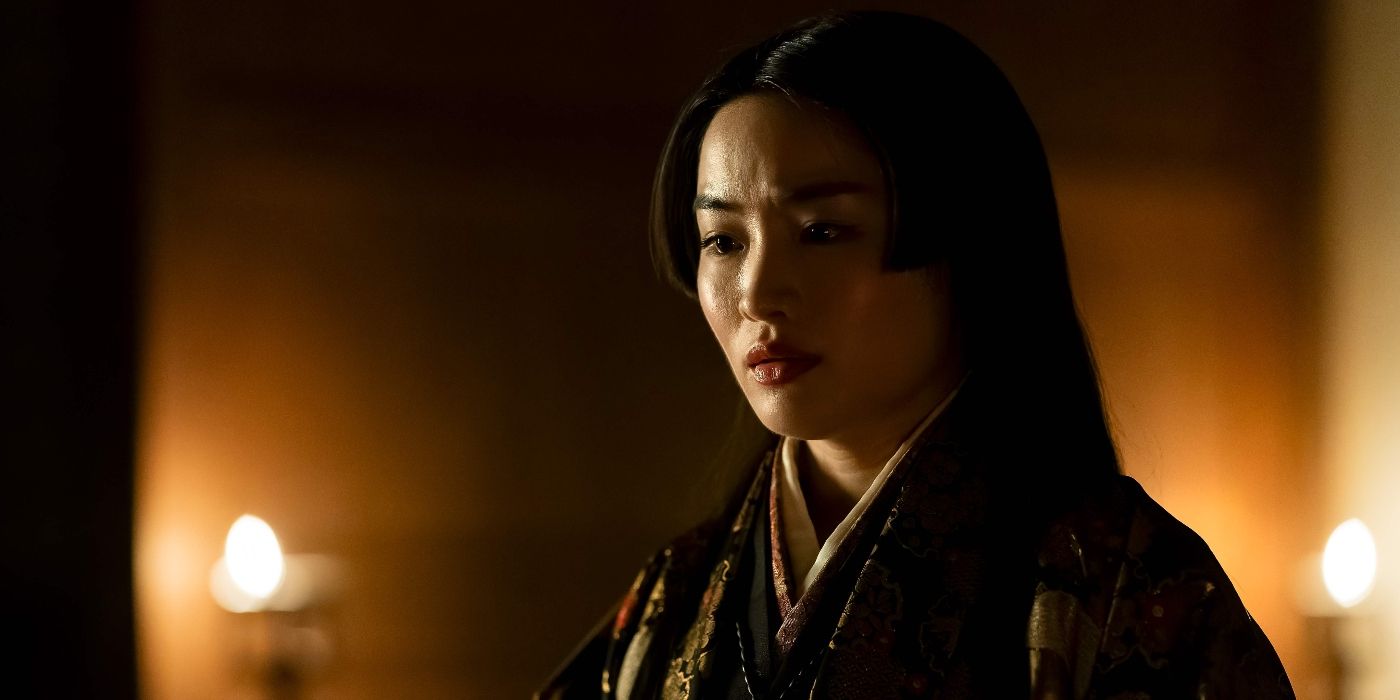
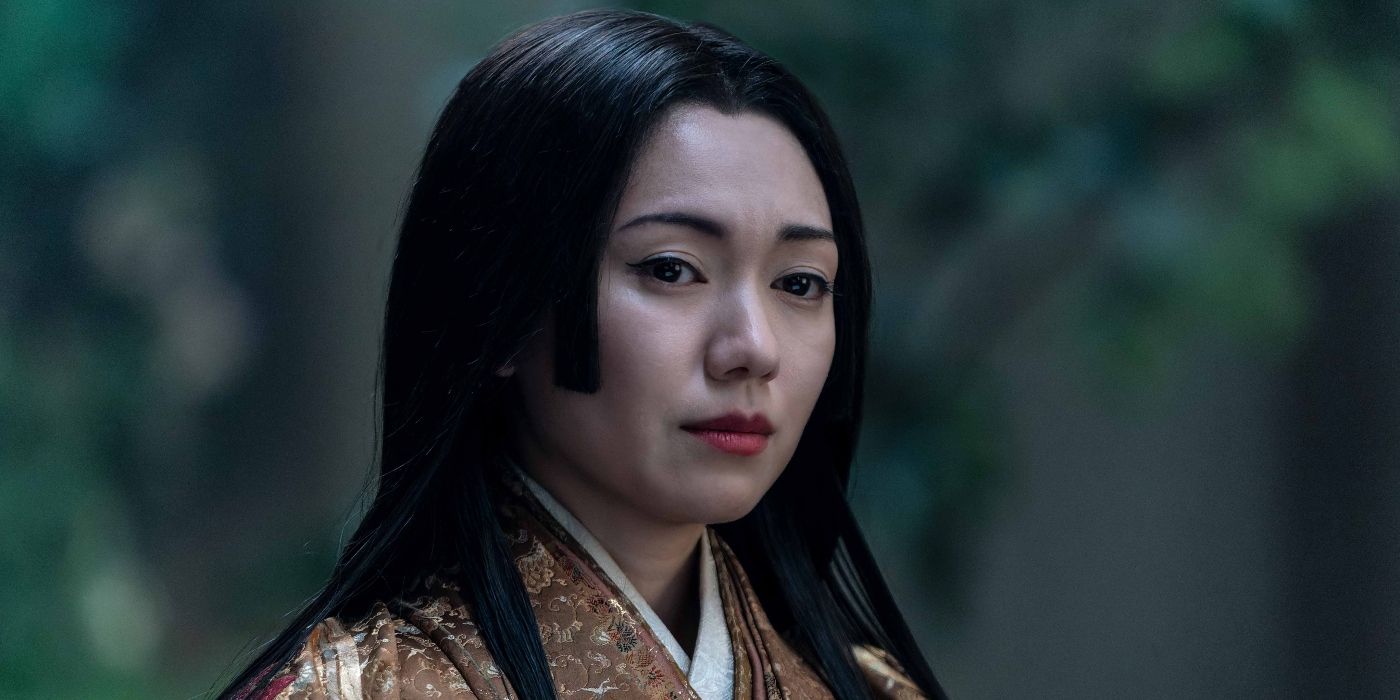
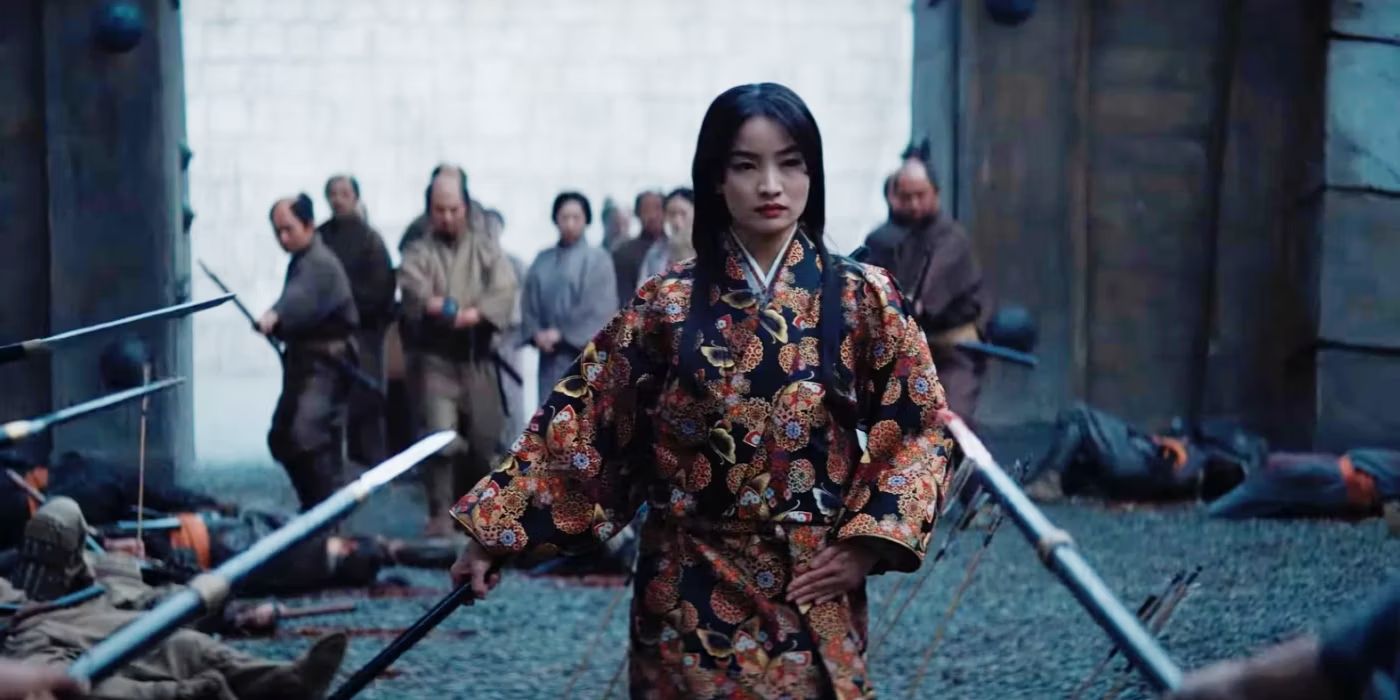
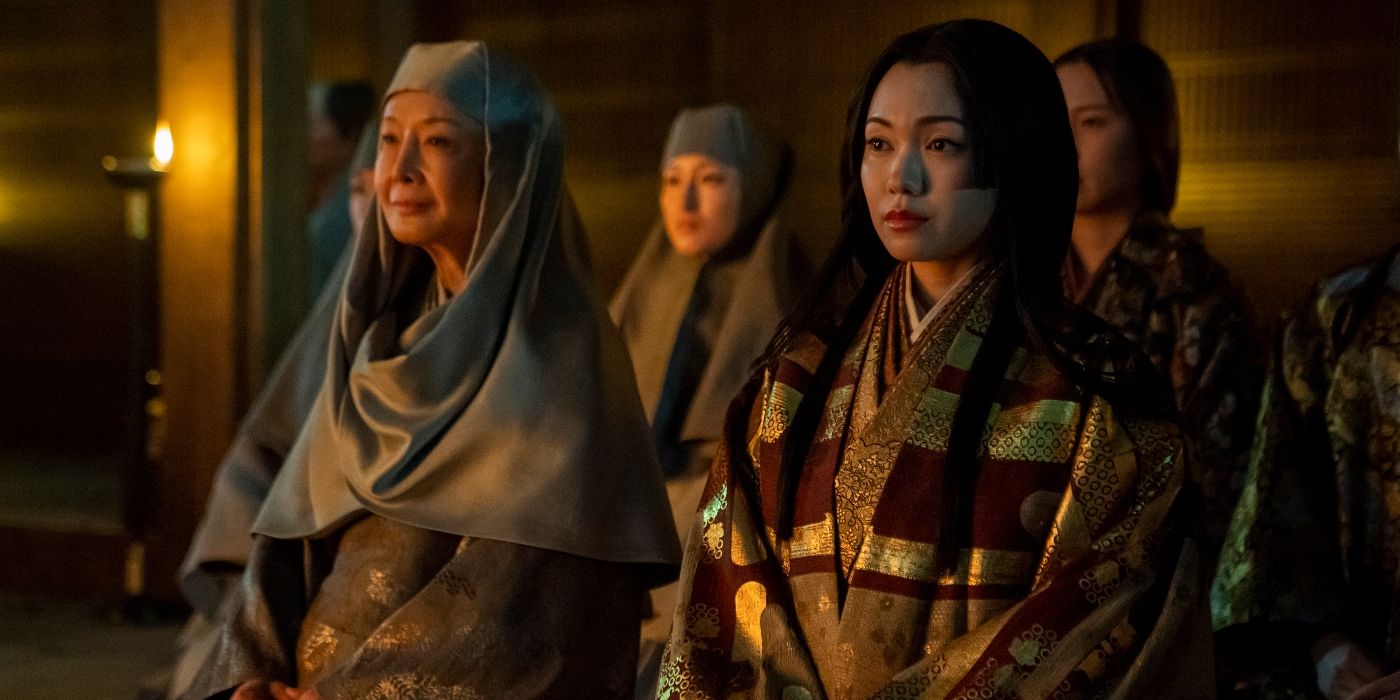
Through her poem, Mariko recognizes Ochiba’s state as a branch devoid of her leaves, all of them having fallen away in her scheming despair. Even though the two haven’t spoken in at least 14 years, her words are a consolation, a warning, and a plea wrapped into a poem. For lack of a more applicable term, it’s an olive branch. Mariko doesn’t want Ochiba to suffer in the upcoming conflict, let alone die. A lesser series would set the former friends as bitter enemies. Instead, Mariko tries to convince Ochiba that her alliance with Ishido is wrong by reaching for Ochiba’s heart.
Mariko’s acknowledgment of Ochiba’s plight dives deeper. It’s empathy derived from experience, because Mariko has been the same leafless branch. Episode 9 opens with a pregnant Mariko fleeing into a haze of snow. It might be her last escape attempt, but it isn’t her first. She’s desperately grieving her family’s death. Moreover, she’s helpless. She can’t assert her will. Even though freezing to death in a snowstorm isn’t traditional seppuku, it’s worthwhile if she can honor their memories. Since that moment, Mariko has frozen herself inside an emotional ice storm. Like the poem says, she’s been “veiled in the haze of cold evening.” And winter, like all cruelty, leaves leafless branches. Mariko was stripped bare, and, for a time, had nothing left.
To paraphrase Episode 6’s brothel scene, Mariko can tell when another woman is suffering. Birthing the heir makes Ochiba the realm’s most powerful woman, but what is said power worth when society demands that she operate from the shadows? When she has no true connection in this world save her son? When her father’s accused murderer wanders free with that same world at his fingertips? Anguish and spite make Ochiba poisonous. If Mariko endures her torment in stillness, Ochiba snatches at crumbs. Ochiba devises a better future for herself, looking entirely inward; Mariko regaining her agency in Episode 9 also secures her country’s well-being. This is where their parallels intensify to breaking.
Since neither woman can operate with complete freedom, Mariko speaks through a riddle. No one suspects that her poem carries the equivalent of a political statement and a platonic love letter. Men like Ishido and Lord Yabushige (Tadanobu Asano) don’t understand her words. Their privilege is too absolute. The message isn’t for their ears, anyway.
Mariko’s Words Change Everything in ‘Shōgun’s Finale
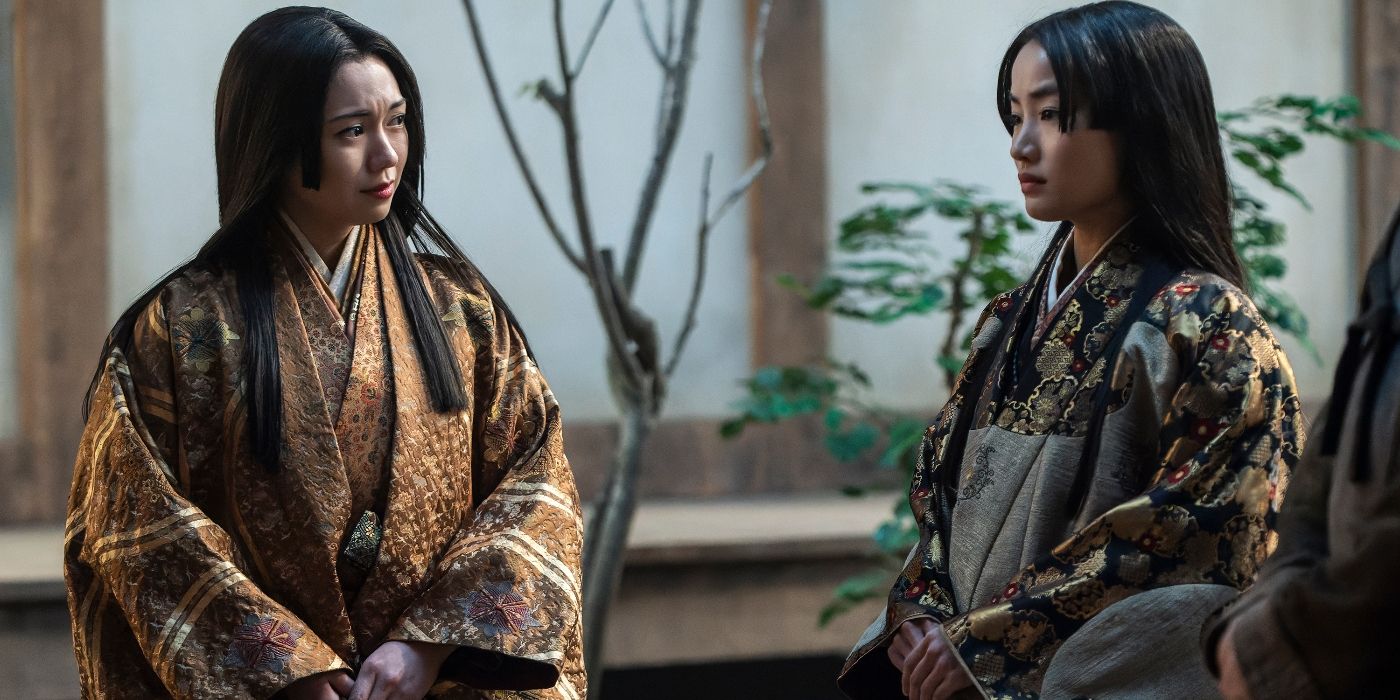
Because there’s no guarantee Mariko will see Ochiba again, communicating through a poem plays into Mariko’s mission parameters. Toranaga charges her with disrupting Osaka’s political stranglehold and freeing the hostages held inside its gates. Swaying Ochiba to Toranaga’s cause would guarantee his victory (and does). So, Mariko leaving her poem unfinished isn’t a threat. It’s an open-ended gesture letting Ochiba grapple with her next move. Unfortunately, Ochiba sees the nuances at play before Mariko’s death but doesn’t unravel the web far or fast enough. Unlike Mariko, her pleas are straightforward when the two share an almost private conversation. She begs the other noblewoman to stand down and accuses Mariko of being Toranaga’s unwitting pawn.
After Mariko’s sacrifice, Ochiba’s arc concludes by finishing Mariko’s poem — literally, and by switching political sides. First, she adds Mariko’s poignant statement that “flowers are only flowers because they fall.” Doing so honors Mariko’s life and the meaning her death holds. As a woman, Ochiba realizes better than most just how right Toranaga was to entrust Mariko with accomplishing “what an army could not.” As she mourns her surrogate sister and reassesses her once-insular world, Ochiba pens the poem’s final line. “Thankfully, the wind,” she says, gazing pensively into the middle distance.
Shōgun equates the wind with fate. To carry the metaphor further, the wind spins fallen flower petals to freedom. It carries them to places they haven’t seen and otherwise couldn’t reach. By hoping as much for Mariko’s spirit, Ochiba realizes she need not remain a leafless branch. Leaves always regrow. The ones that did fall can dance in the wind. Even though it takes a moment as drastic as Mariko’s death to influence Ochiba, Mariko’s radical lyricism reaches her friend’s heart. Without frills or fuss, Shōgun reasserts Mariko’s power over the series, the world, and language through an art form essential to samurai and as old as time — poetry. Every word means something, even if the audience doesn’t consciously realize it.
Shōgun is available to stream on Hulu in the U.S.




